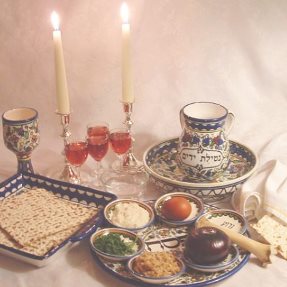
Religion

Pesach seders of my youth
SUZANNE BELLING
It was a medina but not a goldene medina like Glenhazel and environs in Johannesburg are today. It was heimisch. Everyone was kosher and we lived opposite the rabbi.
Many of my generation are now scattered to far-flung shores, in perpetuation of the concept of the wandering Jew. Some have moved to the Atlantic Seaboard; some have swapped their South African lifestyle for that of the US, Canada, Australia, England and Israel.
But wherever they have wandered to, Wynberg, the suburb in the Valley of the Vines, hibernates in the corners of the mind to awaken to the sight of an oak leaf stirring in the breeze and the fragrance of a Yomtov or Shabbos meal wafting from the windows of high rises.
Wellington Avenue and the perpendicular Wellington Road were named for Arthur Wellesley, later Duke of Wellington, after his sojourn in Wynberg in 1796. The area had a “British feel” about it, even more so for my family, who actually lived in Wellington Street West in Manchester, England, my home for the first eight months of my life.
For some of us, parents of the democratic generation, life has turned full circle. My own son and daughter took advantage of their British ancestry and made their home in England, one temporarily and the other permanently.
In the houses – nearly all Jewish – along the avenue, dwelt the laughter of children, the loquats that fell to the ground for eating and pelting, the array of ornaments and photographs from “Der Heim”, the aroma of Mrs Hendler’s taiglach bubbling away in the mysterious pot of sweetness that seemed to seep into every neighbouring home, enticing folk to make their purchases for Pesach.
Pesach was special. We had no chocolates – only imberlach and pletzlach or Pesachdike cooldrinks – or jam, except when it was homemade.
The entire family gathered at the home of the matriarch of the family, Auntie Celia, and sat around the huge seder table.
But it was a “mutter mumble” seder – my father and uncles sat at the head of the table. They muttered and mumbled. Only when it came Ma Nishtana and the songs did we join in. A far cry from today’s generation who learn everything at school. They even have props – including frogs, lice, cattle, bottles of blood (play-play) – when we come to the 10 plagues. But inevitably, when my brother opened the door for Elijah, the dog walked in.
Year after year, we had the same menu (my aunt was a wonderful cook). Chopped liver, chopped herring, chicken soup and kneidlach, tzimmes from a recipe handed down from my great-grandmother, turkey, duck, chicken (and apple sauce instead of gravy), sweet potatoes, roast potatoes and squash, followed by stewed and fresh fruit.
There were no kosher l’Pesach cakes and jellies then. For weeks Auntie Celia planned the menu. Her home was large and the floors highly polished. “You can eat off them,” she took pride in saying.
One Pesach night, as she was carrying the massive pots and dishes into the dining room, she dropped the tzimmes! Her house was spic and span – not a crumb of chometz could be found. So, Celia proved what she had always said: We ate the scraped-up meal off the floors and no one was any the wiser!
The spiritual leaders of our shul always played an important role in my life till I left the area. I was too young to appreciate or understand Rev Gordon, especially his sermons which were in Yiddish. But we became close to the Pakters, as the rav’s children were our peers.
Rabbi David Rogut, now in Sydney, and his wife, Vicky, lived opposite us. He was young, innovative and taught me Hebrew, while Vicky showed me how to follow services.
Rabbi Dr Lionel Mirvis, who married us, came into our lives again in Johannesburg in the late nineties, when we helped him set up some Kabbalah lectures. In December 2004, he spoke at our silver wedding in Sea Point.
His son, Rabbi Ephraim Mirvis, is the chief rabbi of the Commonwealth.
In Wynberg, I learned the lesson of Hillel’s injunction in Pirkei Avot (2:5): “Separate not thyself from thy congregation…” It is as a result of this that I have been steeped in the community, professionally and personally, all my life.
But nothing can replace the family feeling and the unforgettable Pesach seders of our youth.




